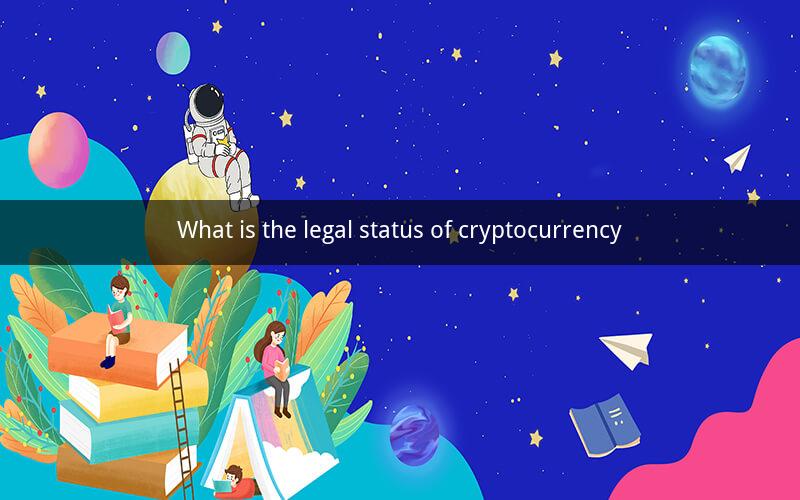
The Legal Status of Cryptocurrency
Table of Contents
1. Introduction
2. Definition of Cryptocurrency
3. The Evolution of Cryptocurrency
4. The Legal Landscape of Cryptocurrency
4.1. United States
4.2. European Union
4.3. Asia
4.4. Africa
4.5. South America
5. The Benefits and Risks of Cryptocurrency
6. Conclusion
Introduction
Cryptocurrency, a digital or virtual form of currency, has gained significant attention in recent years. Its decentralized nature and potential for high returns have made it a popular topic among investors and businesses. However, the legal status of cryptocurrency remains a subject of debate and uncertainty. This article explores the legal landscape of cryptocurrency, its benefits, risks, and the evolving regulatory frameworks in different regions.
Definition of Cryptocurrency
Cryptocurrency is a digital or virtual currency that uses cryptography for security. Unlike traditional currencies, such as the US dollar or the Euro, cryptocurrencies are not controlled by any central authority. Instead, they are decentralized and operate on a technology called blockchain, which is a distributed ledger that records all transactions.
The Evolution of Cryptocurrency
The concept of cryptocurrency was introduced in 2009 with the launch of Bitcoin, the first decentralized digital currency. Since then, numerous other cryptocurrencies, such as Ethereum, Litecoin, and Ripple, have emerged, each with unique features and purposes. The evolution of cryptocurrency has been driven by the desire for a secure, transparent, and borderless form of currency.
The Legal Landscape of Cryptocurrency
The legal status of cryptocurrency varies significantly across different regions. Here is an overview of the legal landscape in various parts of the world:
4.1. United States
In the United States, cryptocurrency is not classified as a legal tender, but it is recognized as a digital asset. The Securities and Exchange Commission (SEC) regulates cryptocurrencies as securities if they meet certain criteria. The Internal Revenue Service (IRS) treats cryptocurrency as property for tax purposes.
4.2. European Union
The European Union has adopted a regulatory framework for cryptocurrency exchanges and wallet providers. The Markets in Crypto-Assets Regulation (MiCA) aims to establish a harmonized regulatory environment for crypto-assets, including cryptocurrencies. However, the legal status of cryptocurrencies as a whole remains uncertain in the EU.
4.3. Asia
Asia has seen varying approaches to cryptocurrency regulation. Japan recognizes cryptocurrency as a legal payment method and has established a regulatory framework for cryptocurrency exchanges. China, on the other hand, has banned cryptocurrency mining and trading within its borders.
4.4. Africa
Several African countries have recognized cryptocurrency as a legal payment method. However, the regulatory framework remains weak in many African nations, leading to concerns about financial stability and consumer protection.
4.5. South America
South America has a mixed approach to cryptocurrency regulation. Argentina and Brazil have recognized cryptocurrency as a legal payment method, while countries like Venezuela have adopted cryptocurrency as their official currency.
The Benefits and Risks of Cryptocurrency
Benefits
- Decentralization: Cryptocurrency operates independently of any central authority, reducing the risk of inflation and manipulation.
- Security: The use of blockchain technology ensures secure and transparent transactions.
- Accessibility: Cryptocurrency can be accessed by anyone with an internet connection, providing financial inclusion to unbanked populations.
- Privacy: Cryptocurrency transactions can be anonymous, protecting users' privacy.
Risks
- Volatility: Cryptocurrency prices can fluctuate dramatically, leading to significant losses for investors.
- Security Threats: Cryptocurrency is vulnerable to hacking and theft.
- Regulatory Uncertainty: The legal status of cryptocurrency remains uncertain in many regions, leading to potential legal and financial risks.
- Lack of Consumer Protection: Cryptocurrency exchanges and wallets may not be subject to the same level of regulation and consumer protection as traditional financial institutions.
Conclusion
The legal status of cryptocurrency is a complex and evolving issue. While some regions have embraced cryptocurrency and established regulatory frameworks, others remain cautious or outright hostile. As the technology continues to develop, it is crucial for governments and regulatory bodies to strike a balance between fostering innovation and protecting consumers.
Frequently Asked Questions
1. What is the main difference between cryptocurrency and fiat currency?
Cryptocurrency operates on a decentralized network, while fiat currency is controlled by a central authority.
2. Is it legal to trade cryptocurrencies in the United States?
Yes, it is legal to trade cryptocurrencies in the United States, but they are regulated as digital assets.
3. How does the European Union regulate cryptocurrency?
The European Union has adopted the Markets in Crypto-Assets Regulation (MiCA) to establish a harmonized regulatory framework for crypto-assets.
4. Can I use cryptocurrency to pay for goods and services?
Yes, many businesses accept cryptocurrency as a form of payment, but the acceptance varies by region.
5. What are the risks of investing in cryptocurrency?
The risks include volatility, security threats, regulatory uncertainty, and a lack of consumer protection.
6. Is cryptocurrency a good investment?
Cryptocurrency can be a good investment for some, but it is important to do thorough research and understand the risks involved.
7. How do I buy cryptocurrency?
You can buy cryptocurrency through a cryptocurrency exchange or a digital wallet.
8. What is a blockchain?
A blockchain is a distributed ledger that records all transactions in a secure and transparent manner.
9. Can governments ban cryptocurrency?
Yes, governments can ban cryptocurrency, but it is challenging to enforce such bans due to its decentralized nature.
10. What is the future of cryptocurrency?
The future of cryptocurrency is uncertain, but it is likely to continue evolving as technology and regulations develop.